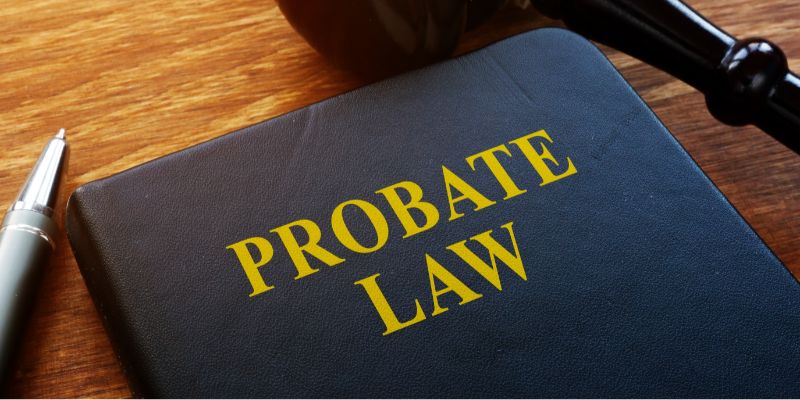How Long Do You Have to Transfer Property After Death in California?

If you have recently lost a loved one, property transfer may be one of the last things on your mind as you feel your grief. Unfortunately, property transfer is a legal process that must be completed in a timely manner following their death. You may be asking, “How long do you have to transfer property after death in California?” Understanding this process and the timelines can help reduce the stress you may be experiencing.
Managing Property Transfer
A survey by Caring.com suggests the percentage of Americans with a will in 2025 is 24%, a decline from 33% in 2022. That means 76% of respondents do not have a directed way to handle their assets, which may delay the transfer. The timeline for property transfer after death in California depends on several factors. These include:
- Type of property. Some property, like bank accounts and life insurance accounts, can be set up to transfer directly to the beneficiary. Once this happens, the funds can be transferred upon receipt of a death certificate.
- How the property is transferred. Property subject to probate will be transferred differently from property in a trust. If a person dies intestate, the property distribution phase may take longer because it will follow state law instead of the decedent’s preferences.
- Size of the estate. Not all estates must go through a formal probate process. Some estates, depending on size, can instead go through a simpler summary succession process.
- Legal challenges. If an estate is legally challenged, then the time to transfer property can be extended as the court hears the challenger’s case.
Property Transferring Through Probate
In most instances, probate is the most complex type of property transfer following a person’s death, but it is also extremely common. Though there is no fixed timeline for probate, the process should be handled in a timely manner. Within the months following the person’s death, the executor of the estate is responsible for many probate steps, including:
- Determining if probate is required
- Filing the probate petition
- Notify stakeholders, including creditors, heirs, and beneficiaries
- Pay all debts and taxes
- Distribute assets
- Close the estate with a final accounting
It is not uncommon for this process to take between six and nine months to resolve. In California, probate cases are handled by the Superior Court in the county where the deceased person resided at the time of death or where they owned property.
Property Transferring Through Small Estate Affidavit
An estate can pass to the beneficiaries without going through probate, in some cases. Under Probate Code § 13100, an Affidavit for Collection or Transfer of Personal Property can be completed if:
- The estate is composed entirely of personal property
- The value of the personal property does not exceed $166,250
- At least 40 days have passed since the decedent’s date of death
If the estate qualifies for the small estate affidavit, all the beneficiaries must sign the affidavit with a notary present. This process will generally be resolved faster than typical probate.
It must be noted that this process cannot be used for real property such as buildings or land. If the real property value is $55,425 or less, then a separate Affidavit re Real Property of Small Value can be completed.
Other Property Transfer Methods
Probate can be a complicated process. Estate holders can utilize other planning tools that are more private and can be easier on heirs. These include:
- Living trust. Property can be placed in a living trust. Once in the trust, it is property of the trust and exempt from probate procedures. Following the trustor’s death, the trustee manages and distributes property according to the trust’s terms.
- Joint ownership. Assets like real estate can have multiple owners, such as multiple people on a building title. Community property that is owned by both spouses can be transferred through the right of survivorship. If property is owned in joint tenancy or allows for transfer on death, then the property transfers to the remaining owners automatically.
- Payable on death designation. Some financial accounts can be designated as payable on death. This allows for a seamless transition to the beneficiaries of accounts like bank accounts, retirement accounts, and life insurance proceeds.
FAQs
Q: How Long Can a Property Transfer Take After a Loved One’s Death?
A: The time it takes for the property to transfer following a loved one’s death depends on how they set up their estate. If their entire estate needs to pass through probate, it can take several months for the transfer process to complete. If the property was set up in a trust or designated to transfer upon death, then the transfer can happen quickly.
Q: How Fast Can Property From a Small Estate Be Transferred?
A: California allows for estates that fall below a certain threshold in value to be administered without going through probate. In 2025, an estate with a gross value of $166,250 or less can qualify to complete a small estate affidavit. Another condition to qualify for this exception is that it has been at least 40 days since the decedent’s date of death. Therefore, the property can be transferred no faster than 40 days following the date of death.
Q: How Is Property Transfer Initiated in California?
A: Property transfer is initiated by the custodian of the will. Per Probate Code § 8200, the custodian of the will has 30 days to present, personally or by registered/certified mail, the decedent’s will to the clerk of the superior court of the county where the decedent’s estate can be administered.
Q: What Can Make the Property Distribution Process Longer?
A: There are many complications that can impact the length of time it takes to distribute property to creditors, heirs, and beneficiaries. The process will typically be faster if the property is transferred through a trust. Alternatively, property going through probate, the decedent passing without a will, and a dispute over the will’s validity can all increase the time it takes for property to be dispersed.
Getting Help With Property Transfer
Property transfer after a loved one passes is not always easy. A Fullerton estate planning lawyer from Kevin Rice, Attorneys at Law, is ready to help. Contact our office today to set up a consultation.
Free Case Review
How much is your case worth? Fill out the form below to schedule a free initial consultation.



